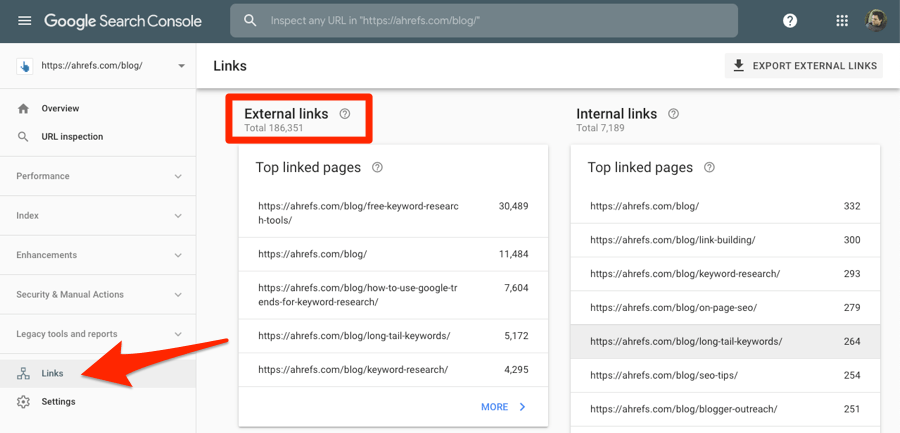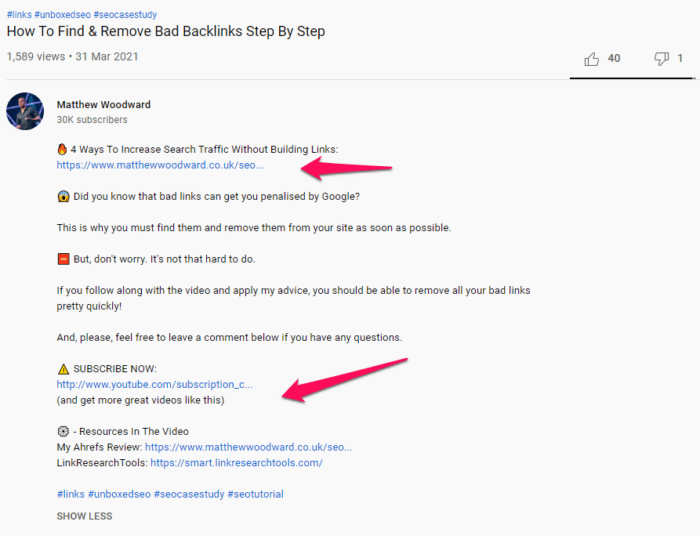How to Effectively Use Social Media for Backlink Building
I. Introduction
As the world becomes more digitized, businesses and individuals are constantly seeking new ways to boost their online presence. One of the most effective ways to do this is through search engine optimization (SEO), which involves optimizing your website and its content to rank higher in search engine results pages (SERPs).
One of the key components of SEO is backlink building, which involves getting other websites to link back to your website. Backlinks are important because they signal to search engines that your content is valuable and worth linking to, which can improve your website’s search engine rankings.
Social media platforms provide a unique opportunity for businesses and individuals to build high-quality backlinks. By utilizing social media effectively, you can not only improve your website’s SEO but also increase your online visibility, drive traffic to your website, and establish yourself as an authority in your industry.
In this guide, we will explore how to effectively use social media for backlink building. We will start by discussing what backlinks are and why they are important for SEO. Then, we will dive into the benefits of social media backlink building and how to use social media to build high-quality backlinks.
We will also share some best practices for social media backlink building, including focusing on quality over quantity, avoiding spamming, monitoring your backlinks regularly, keeping your content fresh and up-to-date, and using anchor text strategically.
By following the tips and tricks outlined in this guide, you can effectively use social media for backlink building and improve your website’s search engine rankings, drive traffic to your website, and establish yourself as a thought leader in your industry. So, let’s get started!
II. Understanding Backlinks

In order to effectively use social media for backlink building, it’s important to first understand what backlinks are and how they affect SEO.
Backlinks, also known as inbound links or incoming links, are links from other websites that lead to your website. Search engines consider backlinks to be a signal of the quality and relevance of your website’s content. The more high-quality backlinks your website has, the higher it is likely to rank in search engine results pages (SERPs).
There are two main types of backlinks: dofollow and nofollow. Dofollow links are links that search engines can follow and use to determine the authority and relevance of your website. Nofollow links, on the other hand, are links that have a rel=”nofollow” attribute added to them, which tells search engines not to follow the link or give it any weight in search rankings.
While backlinks can be a powerful tool for improving your website’s SEO, it’s important to note that not all backlinks are created equal. Search engines value high-quality, authoritative backlinks over low-quality, spammy backlinks.
Additionally, the anchor text used in the backlink can also affect its value. Anchor text is the text used in the hyperlink that leads to your website. Search engines use anchor text as a signal to help determine the topic and relevance of the linked page.
Overall, understanding the basics of backlinks is crucial for effectively using social media for backlink building. By focusing on building high-quality, authoritative backlinks with relevant anchor text, you can improve your website’s search engine rankings and increase your online visibility.
III. Benefits of Social Media Backlink Building

Social media platforms provide a unique opportunity for businesses and individuals to build high-quality backlinks. By utilizing social media effectively, you can not only improve your website’s SEO but also increase your online visibility, drive traffic to your website, and establish yourself as an authority in your industry.
Here are some of the key benefits of social media backlink building:
- Increased website traffic: By sharing links to your website on social media platforms, you can drive more traffic to your website. This can not only improve your search engine rankings but also increase your chances of generating leads and conversions.
- Improved domain authority: Backlinks from high-authority websites can help improve your own website’s domain authority, which is a metric that search engines use to determine the relevance and quality of your website’s content.
- Enhanced online visibility: By building high-quality backlinks from relevant websites, you can increase your online visibility and establish yourself as an authority in your industry. This can help attract more followers and customers to your brand.
- Social media platform optimization: Social media platforms themselves can be optimized for search engines, which can also help improve your website’s SEO. By creating high-quality social media profiles with relevant keywords and links to your website, you can improve your search engine rankings and online visibility.
Overall, social media backlink building can be a highly effective strategy for improving your website’s SEO and online visibility. By following best practices and focusing on building high-quality, authoritative backlinks, you can reap the benefits of increased website traffic, improved domain authority, and enhanced online visibility.
IV. How to Use Social Media for Backlink Building
Now that you understand the benefits of social media backlink building, let’s dive into how to use social media effectively to build high-quality backlinks.
- Identify relevant social media platforms: The first step is to identify the social media platforms that are most relevant to your industry and audience. For example, if you’re in the B2B space, LinkedIn may be the best platform to focus on, while Instagram may be more suitable for a consumer-focused brand.
- Create high-quality content: In order to attract backlinks, you need to create high-quality, shareable content that provides value to your audience. This could be in the form of blog posts, infographics, videos, or other types of content.
- Share your content on social media: Once you’ve created your content, share it on your social media platforms with a link back to your website. Be sure to use relevant hashtags and engage with your followers to increase the reach of your content.
- Engage with other users: Engaging with other users on social media can help you build relationships and attract backlinks. This could involve commenting on other users’ posts, sharing their content, or participating in industry-specific groups or chats.
- Monitor your backlinks: It’s important to monitor your backlinks regularly to ensure they are high-quality and relevant. Use tools like Google Analytics or SEMrush to track your backlinks and analyze their impact on your website’s SEO.
- Use anchor text strategically: When linking back to your website, be sure to use relevant anchor text that accurately reflects the content on your website. This can help improve your website’s search engine rankings for specific keywords.
By following these tips and best practices, you can effectively use social media for backlink building and improve your website’s SEO, online visibility, and authority in your industry. Remember to focus on quality over quantity and engage with your audience to build strong, long-lasting relationships.
V. Best Practices for Social Media Backlink Building
While social media backlink building can be a highly effective strategy for improving your website’s SEO and online visibility, it’s important to follow best practices to ensure that your efforts are successful. Here are some key best practices for social media backlink building:
- Focus on quality over quantity: Rather than focusing on the number of backlinks you can generate, prioritize building high-quality, authoritative backlinks from relevant websites.
- Create shareable content: In order to attract backlinks, you need to create high-quality, shareable content that provides value to your audience. This could be in the form of blog posts, infographics, videos, or other types of content.
- Use relevant keywords and anchor text: When linking back to your website, be sure to use relevant keywords and anchor text that accurately reflect the content on your website. This can help improve your website’s search engine rankings for specific keywords.
- Engage with your audience: Engaging with your audience on social media can help you build relationships and attract backlinks. This could involve commenting on other users’ posts, sharing their content, or participating in industry-specific groups or chats.
- Monitor your backlinks: It’s important to monitor your backlinks regularly to ensure they are high-quality and relevant. Use tools like Google Analytics or SEMrush to track your backlinks and analyze their impact on your website’s SEO.
- Avoid spammy tactics: Avoid using spammy tactics like buying backlinks or participating in link farms. These tactics can harm your website’s SEO and reputation.
Overall, following these best practices can help you effectively use social media for backlink building and improve your website’s search engine rankings and online visibility. By prioritizing quality over quantity and engaging with your audience, you can build strong, long-lasting relationships and establish yourself as an authority in your industry.
VI. Conclusion
In conclusion, social media backlink building can be a powerful strategy for improving your website’s SEO and online visibility. By creating high-quality, shareable content and engaging with your audience on relevant social media platforms, you can attract authoritative backlinks that can improve your website’s search engine rankings and drive more traffic to your website.
It’s important to follow best practices for social media backlink building, such as focusing on quality over quantity, using relevant keywords and anchor text, and monitoring your backlinks regularly. By avoiding spammy tactics and building strong relationships with your audience, you can establish yourself as a trusted authority in your industry and improve your website’s overall online reputation.
Remember that social media backlink building is just one part of a comprehensive SEO strategy. It’s important to also focus on other key aspects of SEO, such as keyword research, on-page optimization, and technical SEO. By taking a holistic approach to SEO and incorporating social media backlink building into your overall strategy, you can improve your website’s online visibility, drive more traffic, and ultimately achieve your business goals.
So, start incorporating social media backlink building into your SEO strategy today and watch as your website climbs up the search engine rankings and attracts more traffic and leads.










Write a Comment